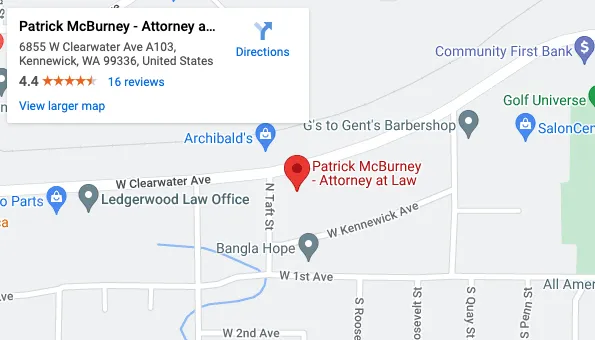Are you seeking debt relief? If you are under a financial strain, you may wonder, “what are advantages of filing Chapter 7 Bankruptcy”? This article will explore those advantages, but first, it is essential to understand that filing for bankruptcy is not an all-inclusive solution. It’s critical to consult a bankruptcy attorney to determine if it is the best course of action for your situation.
The “Get Out of Debt Free Card” Misconception
There is a misconception that bankruptcy means you are automatically exempt from paying any debts, allowing you to step away entirely from all financial responsibility. While it can be an excellent solution for setting you on the path to financial freedom and peace of mind, you must understand there will still be some accountability involved with filing.
There are several types of bankruptcy cases, with chapter 7 bankruptcy and chapter 13 bankruptcy being the most common. Which one you pursue can also depend on what you qualify for, your assets, and your debts. Chapter 7 Bankruptcy can help lift a weighty burden off of your shoulders, but it is still essential to ensure you have an in-depth understanding of the potential implications of filing, both positive and negative.
Advantages of Filing Chapter 7 Bankruptcy
Here is a look at some benefits of filing for chapter 7.
Immediate Relief from Creditors
From the moment you file, under bankruptcy laws, you are granted an automatic stay to provide you with protection from creditors. This means that they are prevented from attempting to collect payment from you or taking any other course of action (such as attempts of car repossession, eviction, foreclosure, etc.) against you to seek compensation for your debts.
This automatic stay will remain in place until your case is discharged or your repayment plan is determined and set in motion. This can be incredibly helpful, especially if you are dealing with multiple creditors attempting to collect payment from or take action against you.
As part of your filing, you will also be assigned a bankruptcy trustee for your case. This individual will act as a liaison between you and creditors, handling all communication until your case is discharged. Any deals that your trustee makes with creditors are final. Once approved, creditors cannot come back and change them later.
It is possible that once your case is finalized and your repayment plan has been set, you may experience relief from ever having to repay a portion of or all of your debts. This can mean that creditors may be forced to receive lower or no payment.
Opportunity to Retain Assets
Under bankruptcy law, you may be able to retain specific “exempt property.” This is property protected by law from your creditors.
Deals with Back Taxes
In some cases, under bankruptcy law, you may be able to set up a repayment plan for owed back taxes to the IRS or state, or these taxes may be dismissed.
Prevents Car Repossession
In the case of a chapter 7 bankruptcy, you may have the option to keep your car (if you pay for it) or walk away from the loan and the vehicle altogether.
Permanent Relief from Unsecured Debts
Once you receive a bankruptcy discharge, most debts will be dismissed. These include unsecured debts, such as credit cards, medical bills, and personal loans. This can help give you a fresh start and a new foundation to build a better financial life.
Potential Increase in Credit Score
If your credit score is low when you file for bankruptcy, you may see an increase in your score once you receive the discharge. This is because marks like past missed payments will not affect your score anymore.
You will have access to several credit offers upon receiving the discharge. This will allow you to begin building your credit score. Although this is the case, be aware that you may encounter new limitations when taking on new credit.
Disadvantages of Filing Chapter 7 Bankruptcy
If all of the advantages of pursuing a chapter 7 bankruptcy case sound like this might be the best path for you, it is important to consider the disadvantages as well:
- You will be required to cover the costs involved with pursuing bankruptcy.
- Some assets may be seized upon discharge.
- You will still owe some debts, such as federal student loans, child support, etc.
- Co-signers and other parties involved in your joint accounts will still be responsible for the debts.
- You must ensure all information you provide when filing bankruptcy is true and accurate. Otherwise, you could face criminal charges.
- If you are a business owner, you could lose your business.
- You may face eviction or inability to be approved as a tenant for future residences.
- You may miss out on potential job opportunities.
- Bankruptcy is public and stays on your credit report for up to 10 years.
- You may experience a hit or drop in your credit score. It may also be difficult to obtain credit in the future.
- Filing takes care of some of the pressure, but it does not help you solve the primary issue that led you into financial strain. It is important to seek credit counseling so that you do not continue with the habits that led you to bankruptcy in the first place.
- Bankruptcy cannot be reversed.
A Trusted Bankruptcy Lawyer: Patrick D. McBurney, Jr.
Patrick D. McBurney is available to advise you on the best course of action for you to take to achieve financial freedom. Schedule a consultation to get an evaluation and see if bankruptcy is right for you!


